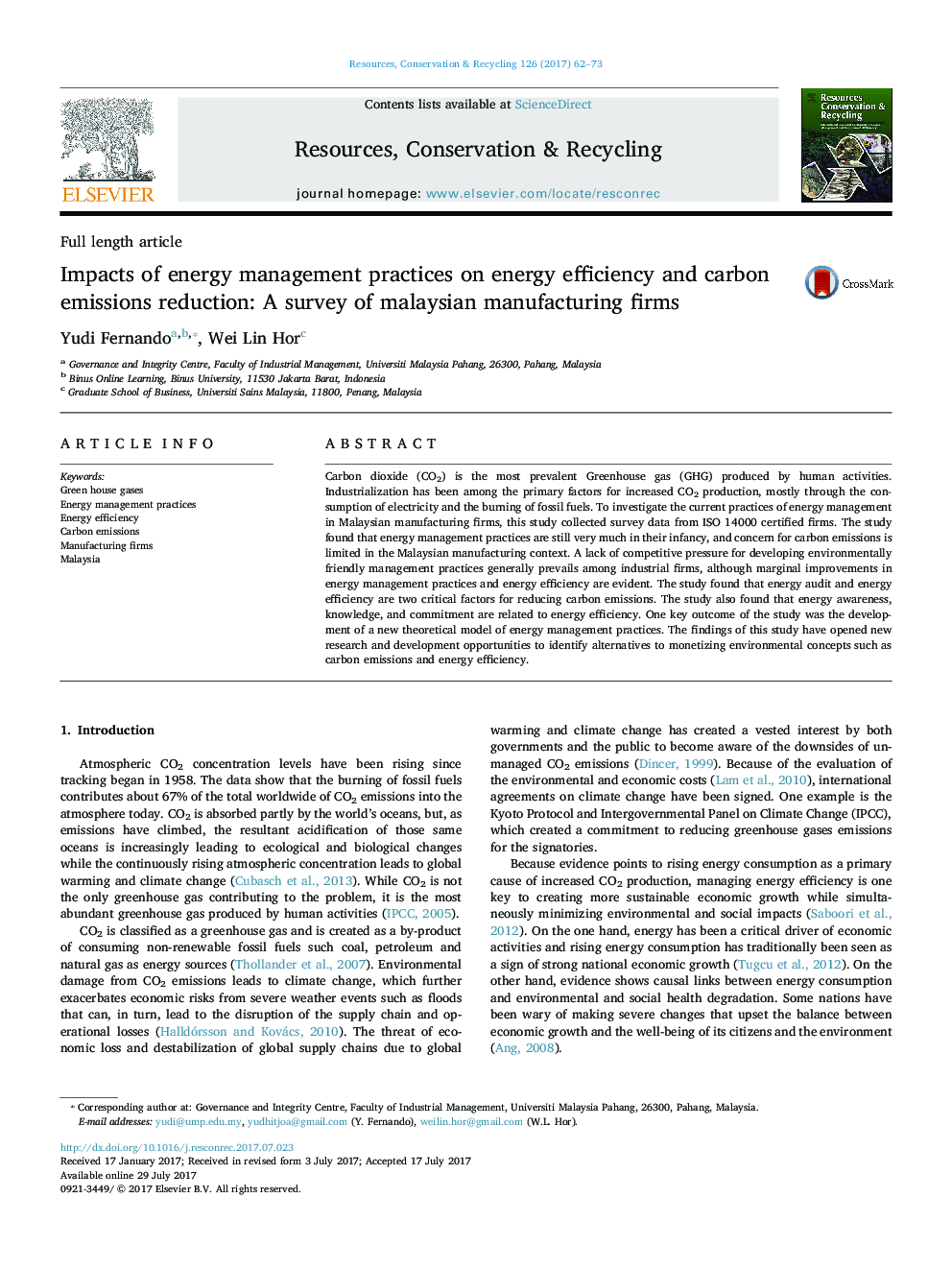| Article ID | Journal | Published Year | Pages | File Type |
|---|---|---|---|---|
| 5118623 | Resources, Conservation and Recycling | 2017 | 12 Pages |
â¢We have developed theoretical model of energy management practices.â¢Energy audit and energy efficiency are two utmost importance factors.â¢Energy awareness, knowledge, commitment are related to energy efficiency.â¢Carbon reduction is still in infancy stage in Malaysia.
Carbon dioxide (CO2) is the most prevalent Greenhouse gas (GHG) produced by human activities. Industrialization has been among the primary factors for increased CO2 production, mostly through the consumption of electricity and the burning of fossil fuels. To investigate the current practices of energy management in Malaysian manufacturing firms, this study collected survey data from ISO 14000 certified firms. The study found that energy management practices are still very much in their infancy, and concern for carbon emissions is limited in the Malaysian manufacturing context. A lack of competitive pressure for developing environmentally friendly management practices generally prevails among industrial firms, although marginal improvements in energy management practices and energy efficiency are evident. The study found that energy audit and energy efficiency are two critical factors for reducing carbon emissions. The study also found that energy awareness, knowledge, and commitment are related to energy efficiency. One key outcome of the study was the development of a new theoretical model of energy management practices. The findings of this study have opened new research and development opportunities to identify alternatives to monetizing environmental concepts such as carbon emissions and energy efficiency.
